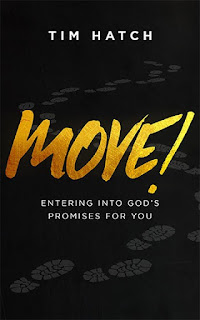Hey readers! My book is finally out! Get a copy and tell me what you think!
2 Chronicles 20:1 (ESV) After this the Moabites and Ammonites, and with them some of the Meunites, came against Jehoshaphat for battle.
What is interesting about this verse is the "after this." The "this" is Jehoshaphat's repentance and reforms of the nation, turning them back to God. Time and again we see this pattern repeated in the scriptures and in our lives. Whenever serious decisions are made to turn to God, the enemy comes in and turns up the heat. These are not signs God is displeased with you, they are signs the enemy is real and seeks to discourage you.
What does Jehoshaphat do? He seeks God.
2 Chronicles 20:3 (ESV) Then Jehoshaphat was afraid and set his face to seek the LORD, and proclaimed a fast throughout all Judah.
Times of discouragement can go either way for us. They can demoralize us or drive us deeper into the faith, reminding us that only God can really save us. The latter is what happens for Jehoshaphat. What I love about Jehoshaphat's appeal to God is that he is well versed in the history of the Lord in their dealings and the promises He made the people. He is confident in God and he's bold in his appeal. Let's study his prayer.
2 Chronicles 20:6–9 (ESV) and (Jehoshaphat) said, “O LORD, God of our fathers, are you not God in heaven? You rule over all the kingdoms of the nations. In your hand are power and might, so that none is able to withstand you. 7 Did you not, our God, drive out the inhabitants of this land before your people Israel, and give it forever to the descendants of Abraham your friend? 8 And they have lived in it and have built for you in it a sanctuary for your name, saying, 9 ‘If disaster comes upon us, the sword, judgment, or pestilence, or famine, we will stand before this house and before you—for your name is in this house—and cry out to you in our affliction, and you will hear and save.’
Jehoshaphat is very familiar with Israel's history under Moses all the way to Solomon's prayer over the Temple from 1 Kings 8 and 2 Chronicles 6. Solomon stipulated at the Temple's dedication that God would listen if they humbled themselves and prayed when enemies came against them.
Then Jehoshaphat lays out specifically the details of Israel's plight:
2 Chronicles 20:10–11 (ESV) And now behold, the men of Ammon and Moab and Mount Seir, whom you would not let Israel invade when they came from the land of Egypt, and whom they avoided and did not destroy— 11 behold, they reward us by coming to drive us out of your possession, which you have given us to inherit.
I love how Jehoshaphat brings up God's prohibition on attacking these people. This shows he's intimately familiar with God's word and not simply aware of it in a cursory fashion. I think prayer like this moves the hand of God in the favor of the people of God. For it shows we take Him and His promises seriously.
Finally, in this moment of appeal, Jehoshaphat the king states the obvious:
2 Chronicles 20:12 (ESV) O our God, will you not execute judgment on them? For we are powerless against this great horde that is coming against us. We do not know what to do, but our eyes are on you.”
We are powerless, we don't know what to do. Those are serious confessions for a king. The king is supposed to know what to do and display awesome power. But Jehoshaphat has no time for pretense, he needs the Lord desperately and states it as such.
I think we learn some important lessons on prayer from this man.
First, that God hears when we seek him in fasting and prayer.
Second, that God's Word is something can hold Him to.
Third, that God is always our ultimate hope, no matter how high we get in life and it takes true courage to confess it at every stage.
These postures are powerful in the life of a praying saint. They set the table for Jehoshaphat and the Israelites in this chapter for an incredible victory and I believe they can do the same for you.

Comments
Post a Comment